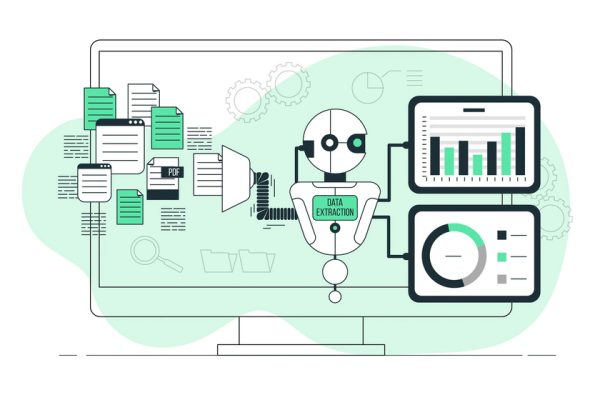In today’s fast-paced business environment, building and maintaining strong customer relationships is critical to the success of any B2B organization.
But with so many touchpoints and interactions to manage, it can be challenging to keep track of all the information and insights needed to make informed marketing decisions. This is where a CRM system comes in.
By providing a centralized platform for managing customer data and interactions, a CRM system can help B2B marketers improve their lead generation, nurturing, and sales processes, leading to better customer relationships, increased sales, and greater profitability.
In this blog post, we will explore the importance of CRM in B2B marketing and how it can help businesses achieve their marketing and sales goals.
1. Improves Customer Experience
Customer experience is important. It’s a key part of the customer journey, and it’s the sum of all interactions with a brand or product. The way you handle things like support tickets or leads can impact your ability to keep customers happy and loyal. So, it’s important to make sure that you’re providing them with an excellent experience along the way!
Besides, CRM enables businesses to collect and analyze customer data, such as purchase history, preferences, and demographics. With this data, businesses can provide personalized experiences for their customers, such as personalized recommendations, tailored marketing messages, and customized support.
- Proactive communication: CRM can help businesses stay in touch with their customers through proactive communication, such as automated follow-up emails, reminders for upcoming appointments, and alerts for new product releases.
- Improved response times: With CRM, businesses can respond to customer inquiries and issues in a timely manner. By having all customer information in one place, businesses can quickly access customer history, preferences, and other important details, allowing them to resolve issues more efficiently.
- Increased transparency: It allows businesses to track and manage customer interactions across multiple channels, such as social media, email, and phone. This transparency helps businesses better understand customer behavior and preferences, leading to improved experiences.
- Better customer insights: It can provide valuable insights into customer behavior, such as what products and services they are interested in, how they prefer to communicate, and what challenges they are facing. By using this information, businesses can make informed decisions about how to improve their products and services to better meet their customers’ needs.
2. Helps in Better Marketing Automation
CRM helps you to identify your customers’ needs. It helps you to track your leads and prospects. So, they can be targeted with better marketing campaigns.
CRM also improves customer relationships by allowing companies to make a direct connection with their customers by providing them the right information at the right time in order to meet their needs.
This is done through the use of data analytics which allows businesses not only better understand their customers but also improve their products or services accordingly. Depending on what they need or want from them in order for them not only to buy but also continue doing business with said company long term.
Here are some ways CRM can help in better marketing automation:
- Improved Segmentation: With CRM, businesses can collect and analyze customer data to segment customers into different categories based on their demographics, purchase behavior, and other attributes. This segmentation helps businesses create targeted and personalized marketing campaigns that better resonate with customers and improve engagement rates.
- Automated Campaigns: CRM allows businesses to automate marketing campaigns, such as drip campaigns, lead nurturing, and abandoned cart follow-ups. By automating these campaigns, businesses can save time and resources while maintaining consistent and timely customer communication.
- Lead Management: CRM can help businesses track and manage leads throughout the customer journey. By having all lead data in one place, businesses can easily follow up on leads, track their interactions, and move them through the sales funnel more efficiently.
- Improved Sales Collaboration: It allows marketing and sales teams to collaborate more effectively. By sharing customer data, both teams can better understand customer needs and preferences, which leads to better lead qualification and conversion rates.
- Performance Tracking: It can provide valuable insights into campaign performance, such as open rates, click-through rates, and conversion rates. By tracking these metrics, businesses can make data-driven decisions about their marketing campaigns and optimize them for better results.
3. Helps in Better Lead Generation
CRM can significantly improve lead generation by providing valuable insights and tools for businesses to attract, capture, and manage leads.
Here are some ways CRM can help in better lead generation:
- Lead Scoring: It allows businesses to score leads based on their engagement level, demographics, and other attributes. By prioritizing high-scoring leads, businesses can focus their resources and efforts on the most promising leads, leading to higher conversion rates.
- Customized Landing Pages: With CRM, businesses can create customized landing pages that target specific customer segments and provide a personalized experience. It can lead to higher lead capture rates and better engagement with potential customers.
- Automated Lead Capture: It allows businesses to automate lead capture processes, such as lead forms, chatbots, and contact forms. By automating these processes, businesses can capture leads more efficiently and respond to inquiries in a timely manner.
- Lead Management: It provides businesses with tools to manage and track leads throughout the customer journey.
- Performance Tracking: CRM can provide valuable insights into lead generation performance, such as lead capture rates, conversion rates, and ROI. By tracking these metrics, businesses can make data-driven decisions about their lead generation strategies and optimize them for better results.
4. Reduces Costs and Increases ROI
- It helps you to identify your customers’ needs, which is vital for creating products or services that meet those needs.
- It also helps you to manage both sales and marketing, as well as track leads and prospects in one place. This makes it easier for people within the organization who need access to this information on a daily basis.
- Finally, it provides the opportunity for better customer relationship management (CRM) through its ability of helping companies better understand what their customers want from them so they know how much more value should be offered in order for them not only to buy but also recommend others do so too!
5. Helps Improve Key Aspects of B2B Marketing
It can significantly improve key aspects of B2B marketing by providing valuable insights, tools, and automation for businesses to better target, engage, and convert B2B customers.
Here are some ways CRM can help improve key aspects of B2B marketing:
- Account-Based Marketing (ABM): CRM allows businesses to implement ABM strategies by providing customer data, segmenting customers, and automating marketing campaigns. By targeting specific accounts and providing personalized experiences, businesses can improve engagement rates and conversion rates.
- Lead Nurturing: It allows businesses to automate lead nurturing campaigns, such as drip campaigns and triggered emails, to build relationships with potential customers and move them through the sales funnel. By providing valuable and personalized content, businesses can improve customer engagement and conversion rates.
- Sales and Marketing Alignment: It can improve collaboration and alignment between sales and marketing teams by providing shared customer data and insights. By aligning both teams around a common goal, businesses can improve lead qualification and conversion rates.
- Customer Insights: It allows businesses to collect and analyze customer data, such as purchase behavior, preferences, and feedback. By using this data, businesses can better understand customer needs and preferences, leading to better product development, customer service, and marketing strategies.
6. Helps Identify Your Customers’ Needs
It is a system that helps you identify your customers’ needs, pain points and challenges. It can also help you understand how they use your product or service. This helps you to better target them with marketing campaigns.
CRM allows users to keep track of their interactions with the company as well as their likes and dislikes, which makes it easier for them to recommend products or services based on these factors.
This also improves customer retention because they feel more connected with the brand than before when they were just buying something from Amazon or Walmart alone without any loyalty towards certain brands like Apple or Samsung. Even if those companies have great deals at times too!
Here are some ways CRM can help in identifying your customers’ needs:
- Customer Feedback: It allows businesses to collect and analyze customer feedback, such as surveys, reviews, and social media mentions. By listening to customer feedback, businesses can gain valuable insights into customer needs and pain points.
- Segmentation: It allows businesses to segment customers based on their behavior, demographics, and preferences. By segmenting customers, businesses can create targeted marketing campaigns and personalized experiences that better meet their needs.
- Predictive Analytics: It allows businesses to use predictive analytics to forecast customer behavior and needs. By using machine learning and data mining techniques, businesses can identify patterns in customer behavior and anticipate their needs.
7. Delivers Accurate Results
CRM is the only system that can deliver accurate results because it is the only system that can capture all the data from all the sources and make it available to you in one place.
This means that you have access to all your leads, contacts, customers and sales pipeline at any time of day or night through your CRM software.
There are several ways CRM systems can achieve accuracy in their results:
- Centralized customer data: It stores customer data in a centralized location. This ensures that all the information related to a customer is accurate and up-to-date. When all the customer data is stored in one place, it eliminates the need for manual data entry, reducing the likelihood of errors.
- Automation: CRM software automates many of the processes involved in customer management. This reduces the need for manual intervention, and as a result, reduces the possibility of errors. For example, a CRM system can automate the process of sending follow-up emails to customers, ensuring that all customers receive the same message at the right time.
- Customization: It allows organizations to customize their customer management processes according to their specific needs. This helps to ensure that the data being collected is relevant and accurate. For example, an organization may choose to collect information about a customer’s buying habits, interests, and preferences to provide a personalized experience.
- Integration: CRM systems can integrate with other applications and systems, such as marketing automation, e-commerce platforms, and social media platforms. This allows organizations to gather data from multiple sources, ensuring that they have a complete view of their customers.
8. Helps You to Manage Both Sales and Marketing
It helps organizations to track activities, workflows, contacts, leads and prospects. So, they can be utilized for future use. A CRM system will have the ability to store all this information in one place which makes it easy for your team members to access when needed.
This also allows them to share information with each other within the same system as well as with external stakeholders like customers or vendors who may need more details about an individual contact or lead before making a decision about buying from them (or even worse – not buying from them).
Here are some ways CRM software can help with both sales and marketing:
- Lead Management: It allows you to manage leads and prospects from various sources such as your website, social media, email campaigns, or referrals. You can use the CRM to capture leads, track their behavior, and manage them through the sales funnel. This helps ensure that leads are properly followed up and that sales and marketing efforts are aligned.
- Customer Data Management: It enables you to store and manage customer data in a centralized location. You can use this data to personalize marketing campaigns, understand customer behavior, and create targeted sales strategies.
- Marketing Automation: Many CRM systems offer marketing automation features that allow you to create and send targeted marketing campaigns to customers based on their behavior or interests. You can automate email campaigns, social media posts, and even ad targeting, ensuring that you are always delivering relevant content to your customers.
- Sales Forecasting: It provides a real-time view of your sales pipeline, allowing you to forecast sales and revenue. You can analyze data such as lead-to-close ratios, sales cycle times, and deal value, to identify trends and make informed decisions about future sales strategies.
- Collaboration: It also enables teams to work together and share information about customers, leads, and sales. Sales and marketing teams can collaborate, share insights, and align their strategies to achieve common goals.
9. Allows You to Track Your Leads and Prospects
It also allows companies who collaborate across different departments such as sales, marketing & operations (SMO), finance etc., which makes them more efficient overall.
Here are some ways CRM software can help you track your leads and prospects:
- Lead Capture: It allows you to capture leads from various sources such as your website, social media, email campaigns, or referrals. You can use the CRM to collect and store lead data, including their contact information, interests, and engagement history.
- Sales Pipeline Management: CRM software provides a real-time view of your sales pipeline, allowing you to track the progress of your leads and prospects. You can use the CRM to monitor their engagement, track their movement through the sales funnel, and identify areas for improvement.
- Reporting and Analytics: It provides reporting and analytics tools that allow you to track the performance of your leads and prospects. You can use this information to identify trends, optimize your sales strategies, and make informed decisions.
10. Help You Strengthen Customer Relationships
- Identifying your customers’ needs. If a new product is introduced, it’s important to know what your customers need in order to identify if they are likely to buy it or not. CRM will give you insight into their buying behavior and preferences. When the time comes for a new product launch, you have an idea of who will be interested and how many people would buy it based on previous experiences with similar items from other companies like yours.
- Understanding their buying habits and patterns better through data analysis tools such as segmentation reports (which show how many people fall into specific groups) or customer relationship management software like HubSpot CRM, Google Analytics, etc.
11. An Essential Part of Any B2B Sales Process
It is an essential part of any B2B sales process. It helps you to manage your leads and prospects, improve customer experience, and improve marketing automation. In addition to these benefits, it also reduces costs and increases ROI.
- Managing Leads: Lead management software allows you to track all activities related to leads. So, you can stay on top of them throughout their lifecycle (e.g., from initial contact through appointment). This makes it easier for both salespeople and support staff because they can view progress reports about each individual case as well as see who else is working on it at any given time.
- Improving Customer Experience: Customer service solutions provide tools like live chat or email support options that enable companies’ employees to communicate directly with customers over instant messenger channels like Slack or Facebook Messenger.
- Improving Marketing Automation: Email marketing campaigns are generally automated by software applications like Hubspot’s Salesforce integration toolkit
- Reducing Costs/Improving ROI: Tracking key metrics helps businesses optimize their spending budget by identifying which channels work best for different types of content (e-newsletters vs social media posts)
12. Manages Your Organization’s Data and Resources
Customer Relationship Management software can better manage your organization’s data and resources by providing a centralized platform to manage customer interactions, sales, and marketing efforts.
Here are some ways CRM software can help manage your organization’s data and resources:
- Automate Data Entry: It can automate data entry by integrating with other systems, such as your website, email, or social media platforms. This reduces the need for manual data entry, saving time and reducing the risk of errors.
- Resource Management: CRM software can help you manage your organization’s resources, such as sales and marketing teams, by providing visibility into their activities and progress. You can track team performance, monitor KPIs, and assign tasks, ensuring that resources are being used effectively.
- Reporting and Analytics: It provides reporting and analytics tools that allow you to track customer behavior, sales performance, and marketing ROI. You can use this information to identify areas for improvement, optimize your resources, and make informed decisions.
- Workflow Management: It can automate workflows, reducing the time and effort required for routine tasks. You can use the CRM to manage lead nurturing, follow-up activities, and customer service, freeing up your resources to focus on higher-value tasks.
Why is HubSpot the Best CRM for B2B Marketing?
HubSpot is a widely popular Customer Relationship Management (CRM) platform that is frequently used by B2B marketing teams.
Here are some reasons why HubSpot is considered one of the best CRMs for B2B marketing:
- All-in-one platform: HubSpot is an all-in-one platform that offers a variety of features, including marketing automation, sales automation, customer service tools, and a robust CRM system. This all-in-one approach allows B2B marketing teams to streamline their workflow and have a unified view of their customer data.
- Customization: It allows B2B marketing teams to customize their CRM according to their unique business needs. This means that businesses can customize their lead generation, lead scoring, and lead nurturing strategies to match their sales and marketing goals.
- Lead Management: It helps B2B marketing teams manage their leads effectively. The platform allows you to capture leads from different sources and nurture them with personalized messaging to increase conversion rates.
- Marketing Automation: HubSpot’s marketing automation tools allow B2B marketing teams to automate repetitive marketing tasks, such as lead nurturing, email marketing, and social media marketing. This helps teams save time and focus on high-value activities.
- Reporting: It provides in-depth reporting and analytics features that allow B2B marketing teams to track their performance metrics. This helps teams to measure the success of their marketing campaigns and make data-driven decisions.
- Integrations: It integrates with a variety of third-party tools and software, including Salesforce, Zoom, and Shopify. This helps businesses to leverage their existing software infrastructure and use HubSpot as a complementary tool.
Conclusion
B2B marketing is an exciting field that allows you to make a difference in your organization’s success and growth. The right CRM system can help you to achieve your marketing goals by offering accurate, timely data about your customers’ needs, preferences and behavior patterns.
It also helps you improve key aspects of B2B sales like lead management and customer relationship management (CRM). We hope that you know the importance of CRM in B2B marketing.






I’m truly impressed with your deep insights and superb writing style. The knowledge you share is evident in every sentence. It’s clear that you put a lot of effort into delving into your topics, and that effort is well-appreciated. We appreciate your efforts in sharing such valuable insights. Continue the excellent job! https://www.elevenviral.com
I’m truly impressed by your deep insights and excellent writing style. Your depth of knowledge shines through in each paragraph. It’s evident that you put a lot of effort into understanding your topics, and this effort is well-appreciated. Thank you for sharing such valuable insights. Keep on enlightening us! https://www.elevenviral.com
I’m truly impressed by your deep insights and superb writing style. The knowledge you share clearly stands out in every sentence. It’s clear that you put a lot of effort into delving into your topics, and the results pays off. Thank you for sharing such detailed information. Keep on enlightening us! https://www.elevenviral.com
I’m thoroughly captivated by the deep insights and stellar way of expressing complex ideas. Your depth of knowledge shines through in every sentence. It’s obvious that you invest a great deal of effort into understanding your topics, and that effort does not go unnoticed. Thanks for providing this valuable knowledge. Continue the excellent job! https://www.elevenviral.com
I am genuinely amazed by the keen analysis and stellar writing style. Your expertise clearly stands out in every piece you write. It’s clear that you invest a great deal of effort into delving into your topics, and this effort is well-appreciated. We appreciate your efforts in sharing such valuable insights. Keep on enlightening us! https://www.elevenviral.com
I’m truly impressed by the deep insights and superb ability to convey information. Your expertise clearly stands out in every sentence. It’s obvious that you invest a great deal of effort into researching your topics, and the results is well-appreciated. Thank you for sharing this valuable knowledge. Keep on enlightening us! http://www.RochelleMaize.com
I’m thoroughly captivated with your keen analysis and stellar writing style. The knowledge you share clearly stands out in every piece you write. It’s obvious that you spend considerable time into understanding your topics, and the results is well-appreciated. Thanks for providing such detailed information. Keep on enlightening us! https://www.elevenviral.com
I’m thoroughly captivated by your keen analysis and superb writing style. Your expertise clearly stands out in every piece you write. It’s clear that you spend considerable time into researching your topics, and this effort pays off. Thank you for sharing such detailed information. Continue the excellent job! https://www.elevenviral.com
I’m thoroughly captivated by the keen analysis and stellar writing style. The knowledge you share shines through in each paragraph. It’s clear that you put a lot of effort into understanding your topics, and the results is well-appreciated. Thank you for sharing such valuable insights. Keep up the great work! http://www.RochelleMaize.com
I am genuinely amazed by your keen analysis and stellar ability to convey information. Your depth of knowledge is evident in every sentence. It’s obvious that you invest a great deal of effort into researching your topics, and that effort pays off. We appreciate your efforts in sharing such valuable insights. Keep up the great work! https://rochellemaize.com
I am genuinely amazed by the deep insights and superb ability to convey information. Your depth of knowledge shines through in each paragraph. It’s obvious that you spend considerable time into delving into your topics, and this effort pays off. We appreciate your efforts in sharing such valuable insights. Continue the excellent job! https://rochellemaize.com
Hi,Check out [www.dramago.live] for all your favorite Korean series. They have a huge variety of the latest and popular dramas you can watch anytime on any device.Thanks!
Hi,Check out [www.dramago.live] for all your favorite Korean series. They have a huge variety of the latest and popular dramas you can watch anytime on any device.Thanks!